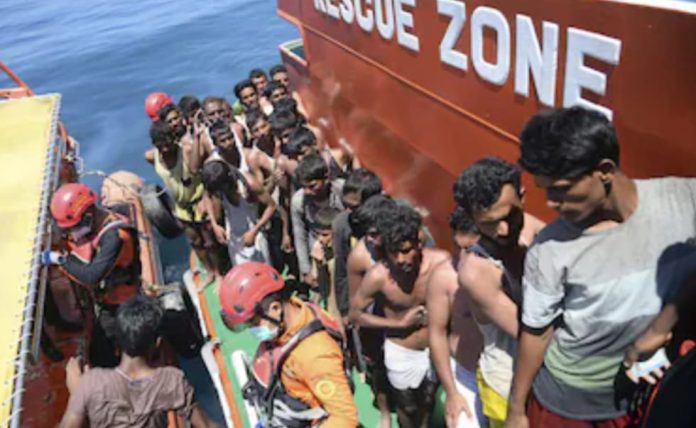21 May 2024: In a significant development, the Arakan Army, an ethnic armed group fighting Myanmar’s military government, claimed on Saturday to have seized the town of Buthidaung in western Rakhine State, near the border with Bangladesh. This marks the latest victory for factions opposing the military regime, according to an AP report.
The town’s predominantly Rohingya Muslim population, already victims of a brutal military campaign in 2017, found themselves at the heart of the conflict. The 2017 campaign, characterized by widespread violence, including rape and murder, forced an estimated 740,000 Rohingya to flee to Bangladesh. Now, the Rohingya in Buthidaung are once again forced to flee amid fresh violence.
Reports from the region remain conflicting and unverified due to restricted access to internet and mobile services. Khaing Thukha, a spokesperson for the Arakan Army, communicated via text message that his group had captured Buthidaung, driving out government forces. He claimed that Arakan Army troops were assisting Muslim villagers fleeing the conflict and denied allegations of setting fire to the town.
The Arakan Army is the military wing of the Rakhine ethnic minority movement, which seeks greater autonomy from Myanmar’s central government. The group is part of an alliance of ethnic armed groups that recently secured strategic territories in northeastern Myanmar, bordering China. Despite historical tensions between the Rakhine Buddhists and the Rohingya, the 2021 military coup shifted political dynamics, aligning the Rohingya with broader anti-military resistance movements.
Nay San Lwin, co-founder of the Free Rohingya Coalition, reported that the Arakan Army had warned Rohingya residents to evacuate by Saturday morning. He highlighted the dire situation of over 200,000 Rohingya who sought refuge in various shelters, now forced into hazardous conditions outside the town.
The Rohingya have faced severe discrimination in Myanmar, where they are often regarded as illegal immigrants from Bangladesh, despite having lived in the country for generations. They are denied citizenship and basic rights. Recent government efforts to recruit Rohingya for military service, promising citizenship in return, have exacerbated tensions.
Calls for an impartial investigation into the violence have been made, with activists emphasizing the need for accountability. The ongoing conflict in Myanmar continues to place vulnerable populations at risk, underscoring the urgent need for international attention and intervention.




